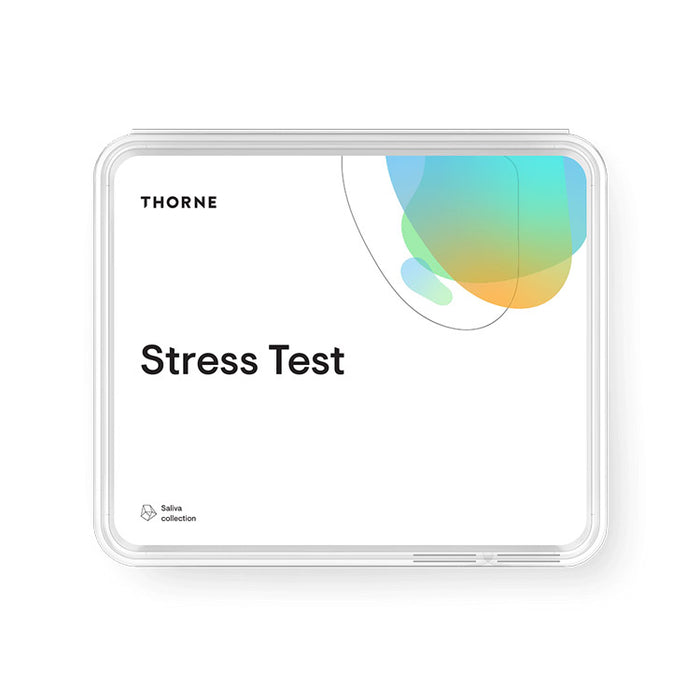
Thorne Stress Test
✓ Authorized Thorne Dealer
✓ Lowest Price Guaranteed
✓
FREE & FAST Shipping: In Stock and Ready to Ship
✓ Questions? Call an RFA Team Member:
1-855-864-6442

✓ Authorized Thorne Dealer
✓ Lowest Price Guaranteed
✓
FREE & FAST Shipping: In Stock and Ready to Ship
✓ Questions? Call an RFA Team Member:
1-855-864-6442
At-home collection. Meaningful insights. Personalized plan.
The adrenal glands help us handle stress. This at-home saliva test provides insights about your stress response and adrenal health by measuring hormone fluctuations. Results include a personalized health plan.
You should take this test if you:
Order and activate
After your purchase is complete, everything you need for your at-home test is delivered to your door. Use the activation code located on the back of the test kit to activate your test on thorne.com and complete your health profile.
Collect samples and send
Referencing the directions booklet included in your test kit, complete your sample collection from the comfort of your home. Use the prepaid shipper to mail your samples directly to the laboratory.
Receive results and recommendations
Your results will be reviewed by an independent, board-certified physician. Once you’ve sent your samples to the lab, after 8-10 business days you will receive your results with meaningful insights and personalized recommendations to promote your health and wellness.
Your 24-hour cortisol pattern and your DHEA level determine whether your stress response is healthy. Depending on your results, you could be experiencing some of these symptoms:
Effects of stress on your body include:
Effects of stress on your mood include:
Effects of stress on your behavior include:
Aspects of Stress
When our adrenal glands function optimally, they produce adequate amounts of cortisol and DHEA to help us cope with stress and power us through the day.
Whether stress comes from our outside environment, like traffic and crowds, or from within, like the anxiety we experience from family or job issues, healthy secretion of cortisol and DHEA from the adrenal glands help us adapt to these situations.
The human stress response is based on two factors ‐ one, the actual stressors (the events and circumstances that impact our life), and two, how we cope with these stressors (how we interpret and respond to them).
Hopefully, we can exert:
How the biomarkers we measure impact your health
Testing for the levels of cortisol and DHEA in your body reveals the pattern of these two key measures of our stress response ‐ stressors and coping. The degree to which your cortisol and DHEA levels fall outside the normal range can be used to guide dietary, exercise, lifestyle, and supplement recommendations.
Cortisol and DHEA
Cortisol has wide-ranging effects in the body: it interacts with the reproductive, immune, and endocrine systems. Cortisol, as part of the stress response, prepares the body for a "fight-or-flight" response by suppressing the production and release of other hormones, such as DHEA and thyroid hormones. Normally, cortisol levels have a rhythm of ebbing and flowing during the day, and your cortisol level is highest in the morning and lowest at night. Thorne's Stress Test takes four saliva samples at four time-points during the day to capture your true cortisol rhythm. Stressors, such as those present in your work or home life, often trigger a release of cortisol, either acutely or persistently, and can affect your health in a variety of negative ways.
DHEA, although produced in the adrenal glands, is also produced in smaller amounts in your brain and sex organs. DHEA is a precursor molecule for testosterone and estrogen synthesis, and, thus, it has many other effects in the body. A person's DHEA production generally declines with age.
Metabolically in the body, cortisol and DHEA are antagonistic to each other. The hormones exist in an ever-changing "tug-of-war" with each other, and when one is elevated, the other is usually lower.
